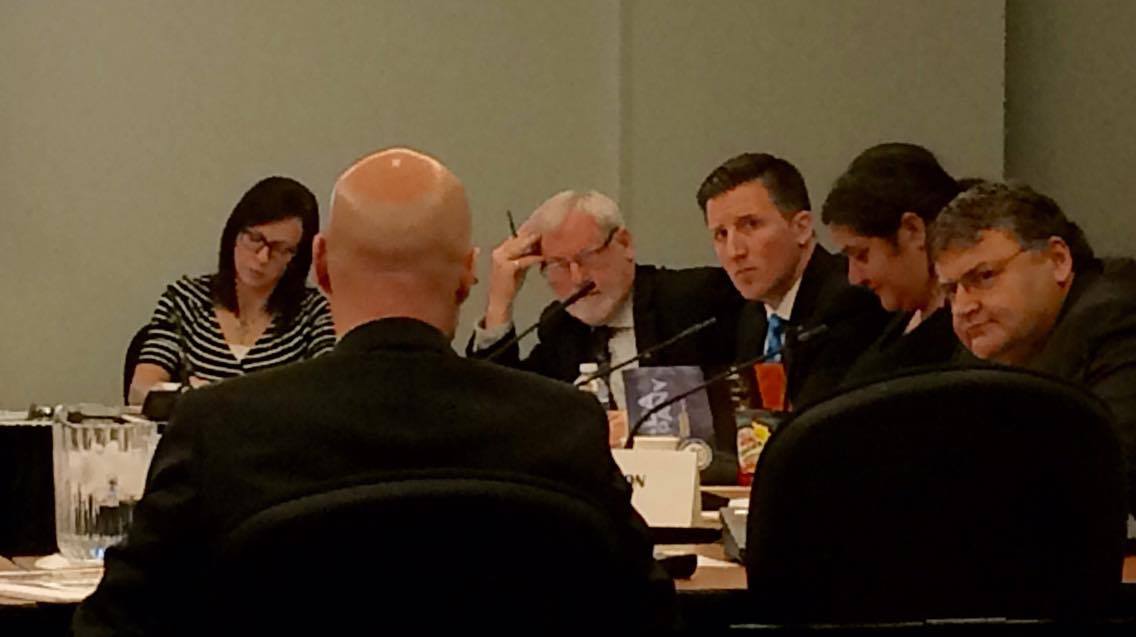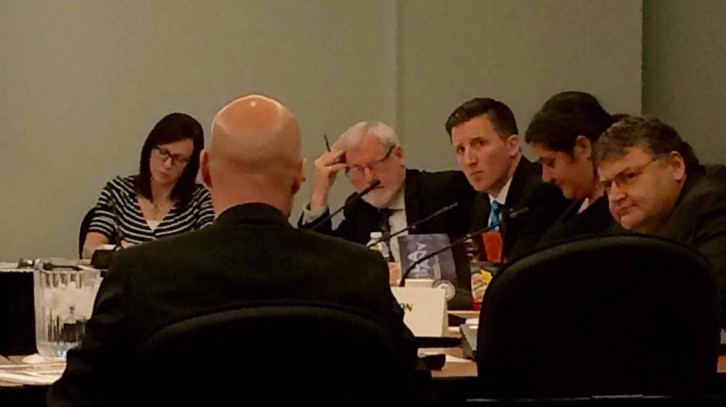Military
Military program assists veterans with outside employment opportunities
Halifax is one of the pilot projects for the program

caption
Kevin Cameron presents the Military Employment Transition program to MLAs.
caption
Kevin Cameron presents the Military Employment Transition program to MLAs.A program to help military members transition to jobs outside the military is working in Halifax, a retired colonel says.
Kevin Cameron spoke to Nova Scotia’s standing committee on veterans affairs Thursday about the Military Employment Transition (MET) program.
Halifax is one of the pilot cities for the program.
The military is one of the city’s largest employers. Approximately 10,700 people are in the Maritime Forces Atlantic defence team.
“There’s a tremendous amount of industry here,” said Cameron, director of the program. “The idea was a recognition that some transitioning military members can have challenges coming out of uniform and into a second career path.”
The self-directed resource program covers resume writing and salary negotiation. It helps members find jobs that use their skills. So far, there are 200 military-friendly employers across Canada and more than 100 jobs posted per month.
Approximately 5,000 Canadians come out of uniform annually.
“The gaps we’re filling is connectivity to the private sector,” said Cameron.
Chris d’Entremont, the MLA for Argyle-Barrington, has a brother in the military. He asked how people living with post-traumatic stress disorder (PTSD) cope in the program.
“Some of their stories can be very difficult,” said d’Entremont. “It’s something we have to talk about in order for there to be mental health acceptance within the military and the workplace.”
Cameron said in his experience, the majority of people leaving the military do not suffer from PTSD and are successful in finding jobs.
He said people who leave the Armed Forces voluntarily tend to be more successful than those who have been medically discharged for mental health reasons.
While the program is designed to provide both resources and support, it’s up to the members to transition into new careers.
“A military member’s destiny is their own,” said Cameron. “Organizations like us are there to assist them.”

